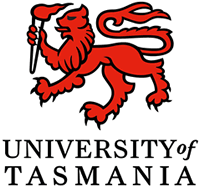About the research project - https://www.utas.edu.au/our-research/research-degrees/available-projects/health-and-medicine/area/menzies-institute-of-medical-research/fitness,-cardiovascular-risk,-and-exercise-blood-pressure
In Australia, we are in the enviable position to have the Childhood Determinants of Adult Health (CDAH) Study, which is based out of the Menzies Institute for Medical Research. The CDAH Study is the only established study worldwide that has collected multiple physical fitness measurements, including cardiorespiratory fitness and muscular fitness, on participants when they were children, followed them for over three decades and assessed their health and fitness as adults. In adulthood, a range of measures have been collected, including a blood and urine sample, heart and blood vessel measures, blood pressure, measures of adiposity, diet, and depression. As such, we are uniquely placed to address global research gaps by identifying how physical fitness measured at multiple time-points across someone’s life is associated with a range of health outcomes. To provide an overview of how our research group has contributed to current understanding, using data collected from the CDAH Study we have shown that children with higher levels of physical fitness are less likely to develop risk factors for diabetes and heart attack, such as prediabetes, metabolic syndrome, insulin resistance, beta cell function, obesity, inflammation, and blood lipids, up to 30 years later in adulthood. However, knowledge gaps remain.
Combining the data already collected as part of the CDAH Study and different analytic techniques, this project will examine the association between measures of fitness collected at one or several time-points over the 30+–year study period and a health outcome of interest to both the candidate and the wider Tasmanian community. Whether the potential candidate prefers studying biochemical measures or has a passion for cardiovascular disease, diet, or mental health – we encourage you to get in touch with us to discuss the study, potential project ideas, and how best we can work together.
Funding
Applicants will be considered for a Research Training Program (RTP) scholarship or Tasmania Graduate Research Scholarship (TGRS) which, if successful, provides:
- a living allowance stipend of $28,597 per annum (2021 rate, indexed annually) for 3.5 years
- a relocation allowance of up to $2,000
- a tuition fees offset covering the cost of tuition fees for up to four years (domestic applicants only)
If successful, international applicants will receive a University of Tasmania Fees Offset for up to four years.
As part of the application process you may indicate if you do not wish to be considered for scholarship funding.
Eligibility
The project is open to domestic (Australian and New Zealand) and international applicants who are already in Australia (onshore) at the time of submitting their application.
Due to current Australian COVID-19 travel restrictions the University cannot accept applications from international applicants who are currently overseas.
Applicants should review the Higher Degree by Research minimum entry requirements.
Selection Criteria
The project is competitively assessed and awarded. Selection is based on academic merit and suitability to the project as determined by the College.
We are seeking a candidate with a willingness to learn new skills and problem solve. A candidate who enjoys a challenge, with a strong work ethic, critical thinking skills and the ability to work autonomously, while also contributing to our wider team, would be a great fit. A passion or interest in sport science, public health, biomarkers of health, nutrition, psychology, education, epidemiology, and/or biostatistics is desirable.
Application process
After checking and ensuring that you meet the eligibility and selection criteria contact the project supervisor.

 Continue with Facebook
Continue with Facebook

